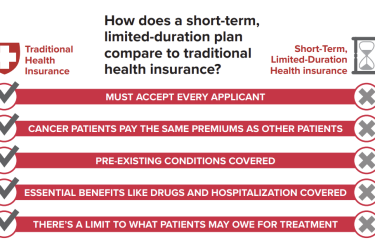(Full disclosure: Kenen is Politico’s health care editor.)
Former AHCJ president and Columbia Journalism Review contributor Trudy Lieberman – in a wonderfully titled piece called “Dropped Coverage” – analyzed media coverage of the Affordable Care Act for the new Politico magazine.
She found that plenty was … dropped.
One, we (the media in general) didn’t adequately prepare readers and viewers for the potential of a website meltdown. A few outlets reported on that grim GAO report on marketplace preparation and there were some reports of concern about the tech readiness. But not that it was all going to meltdown.
Two, we didn’t prepare readers for the masses of canceled plans.
So when the law actually came into effect on Oct. 1, Americans were by and large not prepared – not for the website when it froze up and not for the millions of cancellation notices that went out to Americans in the individual insurance market. The news hit like a bomb – and the political impact hit that much harder for the Obama administration. Why hadn’t the media caught wind of HealthCare.gov’s troubles? Had President Obama lied when he promised, “If you like your health care plan, you can keep your health care plan.” And if so, why didn’t the media call him on it at the time?
Later in the piece she writes:
It took two things – the failure of the website and the turmoil in the individual insurance market—to ignite public awareness of what the Affordable Care Act will and will not do. Suddenly, many journalists were realizing that the real story was not the stuff of far-right paranoia—like the false “death panels” claims or the canards about “socialized medicine” that dominated the early coverage; it was the law’s messy tradeoffs, its power to create new classes of winners and losers as it tried to bring insurance to more America.
She also faults reporters for focusing on the political battles and not adequately explaining things like essential health benefits and subsidies. (Though of course the law has become deeply ingrained in our political world at the moment – the 2010 midterm election turned on the ACA, it was a factor in the 2012 presidential race, it’s shaping up as critical for races that will decide control of the Senate this year – and the House has devoted weeks to “repeal” votes. It’s definitely part of our political narrative.)
Her critique is worth a read. It was, of course, hard to know the website wouldn’t work – including in some of the blue-est states most deeply committed to reform like Oregon and Maryland. Both the contractors themselves and the government officials testified to Congress that it was by and large ready. The White House – including President Obama – had said, and many of us reported, that there would be bumps. But what happened was a lot more than a “bump.”










